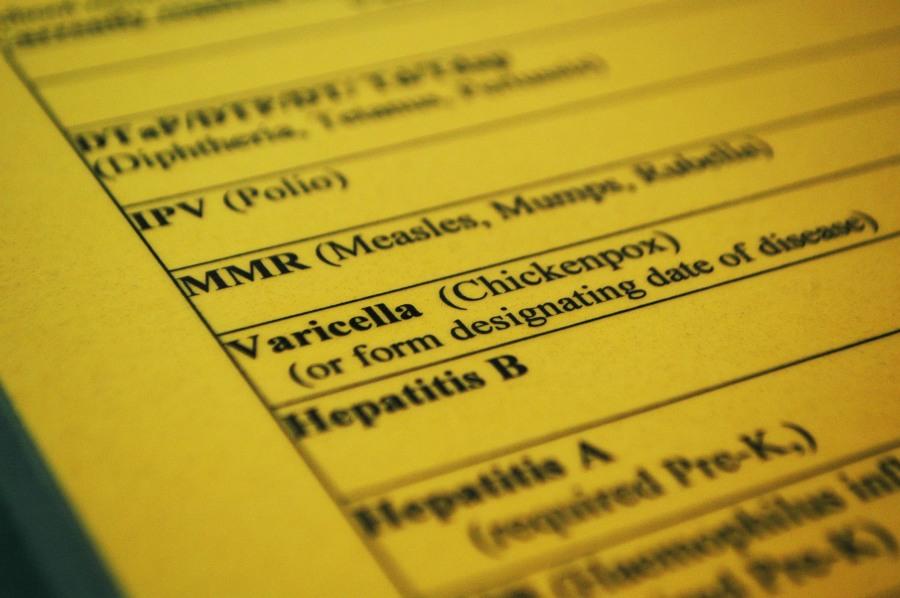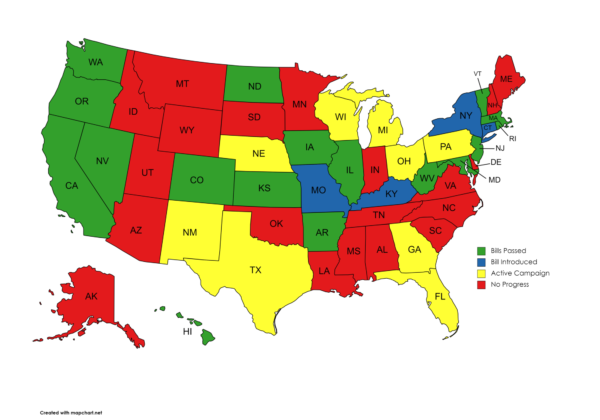Vexing Vaccines
With the recent outbreak of measles, it’s time to remember and decide whether or not you got your vaccine.
Photo Courtesy of Cooper Brown
A sheet listing the types of viruses that can be prevented by a vaccine. This contains potentially life saving information and can be found in the Health Office.
As most of us know, Disneyland has had an outbreak of measles. The cause of the outbreak is speculated to have happened because some parents didn’t get their children vaccinated. But why ever would someone not get the standard vaccination for their child? Autism is the answer. Parents of children everywhere are following in Jenny McCarthy’s footprints and becoming anti-vaccine advocates. Science and these activists are in a quarrel, but that doesn’t stop diseases, like measles, from spreading.
On Jan. 28, I was absentmindedly watching CBS 5 Arizona when I heard that a 3-year-old girl battling leukemia was exposed to measles. Maggie Jacks was going into the hospital for her routine chemotherapy and later her father, Dr. Tim Jacks, got a call from the hospital. They told him someone with measles had been in the urgent care unit around the same time he and his daughter were. He, being a pediatrician, wants his daughter to have the vaccine for measles, but she can’t due to her illness. Not only was Maggie exposed to the potentially deadly virus, but so was her 10-month-old brother, Eli Jacks. Eli couldn’t be vaccinated because he is too young.
The story of Maggie agitated me for more than one reason. The first reason that someone had measles in the first place is because that means they didn’t get their vaccinations. By not getting the vaccination, he or she got measles and exposed it to everyone in the hospital, including people like Eli and Maggie that can’t get the vaccine due to medical and age restrictions. The second reason it perturbed me is because many scientific researches have shown that there is no link between autism and vaccinations.
The protesters against vaccinations are concerned about the ingredients of childhood vaccines. There have been studies that show a link between the ingredient thimerosal and autism. However, the Center for Disease Control and Prevention (CDC) says that thimerosal was taken out of or “reduced to trace amounts” all childhood vaccines except a particular influenza vaccine in 2001. There is a thimerosal-free option of that influenza vaccine, though. The CDC also says “no links have been found between any vaccine ingredients and autism” to the other vaccine ingredients that are of concern.
The Institute of Medicine (IOM) has released a scientific review concluding no connection between autism and the measles-mumps-rubella (MMR) vaccine. The CDC supports the review and the conclusion. The IOM also published a report that showed eight vaccinations, which included MMR and Varicella (chickenpox), to be “generally safe”.
I’m not against everything the people that denounce vaccines are saying, though. I understand that it would be difficult to raise a child with autism, having to work around their needs. But they are being told and shown science that contradicts their thoughts and they choose to say “I don’t believe that,” as a caller did on a Science Friday radio show from 2008 to Paul Offit after being told how many researches have been done on vaccines.
While I can go on and on about the science behind the relationship between autism and vaccines, it’s up to the family. It’s up to the family to decide if they find not vaccinating their kids immoral or necessary. However much I may think it should be illegal because they are not only putting their child up for potential danger, but other people too, it’s not for me to decide whether or not everyone gets vaccines. It’s up to parents, and they make the choice for their circumstances.






















Tyrion Lannister • Feb 27, 2015 at 4:27 pm
I am so vexed.